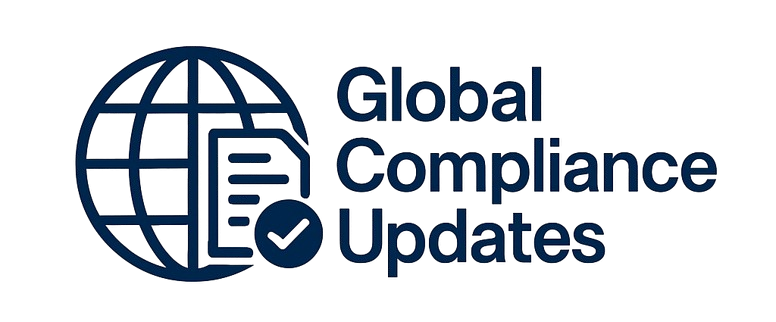This training on lawful handling of addiction in the workplace will discuss what to expect from an employee who is suffering from an addiction, when you are required to provide leave under either the FMLA or the ADA and a host of other issues.
WHY SHOULD YOU ATTEND?
Every employer has faced, or will face the issue of addiction in the workplace. Addictions cause loss of productivity, multiple mistakes, high absenteeism, and leaves of absences that may be needed for rehabilitation.
- How do you deal with the legal issues that arise when handling addiction issues at the workplace?
- How do you stop or minimize addiction issues that start at an employee's home from bleeding over into the workplace?
- How do you get an employee to admit that he/she has a problem, and get the help they need?
This 3-hr virtual seminar will walk you through what to expect from an employee who is suffering from an addiction, when you are required to provide leave under either the FMLA or the ADA and a host of other issues. By attending this session you would have gained the knowledge and the practical know-how to avoid legal issues arising from the application of your own policies, issues under the Family and Medical Leave Act, and issues under the Americans with Disabilities Act.
AREA COVERED
- Why is alcoholism treated differently under the ADA?
- When is a leave of absence under the ADA reasonable?
- Can a request for an “indefinite leave of absence” ever be reasonable?
- What the interactive process requires under the ADA.
- Examples of questions to ask during the interactive process.
- What are the requirements for a legally compliant medical authorization so that you can get the information you need?
- When does the interactive process fail?
- What are last chance agreements?
- How does the law view last chance agreements?
- Using last chance agreements effectively.
LEARNING OBJECTIVES
- Understanding addictions and why they happen even to “good” people.
- Signs that an employee may be suffering from addition.
- What underlying medical conditions can lead to addiction?
- How to handle an employee who arrives at work under the influence?
- Legal risks for allowing those under the influence to drive home.
- What your drug testing policies should include.
- Restrictions that might be placed on random drug testing.
- What is “reasonable suspicion” drug testing?
- When an employee is entitled to leave under the FMLA to address addiction issues.
- Does the FMLA exempt those who are addicted to illegal drugs?
- Walking through the Americans with Disabilities Act – while the ADA does not cover individuals who use illegal drugs, it covers those with past use. What is “past use”?
WHO WILL BENEFIT?
- Human Resource Professionals
- Risk Managers
- Individuals who must administer benefits for the company
Every employer has faced, or will face the issue of addiction in the workplace. Addictions cause loss of productivity, multiple mistakes, high absenteeism, and leaves of absences that may be needed for rehabilitation.
- How do you deal with the legal issues that arise when handling addiction issues at the workplace?
- How do you stop or minimize addiction issues that start at an employee's home from bleeding over into the workplace?
- How do you get an employee to admit that he/she has a problem, and get the help they need?
This 3-hr virtual seminar will walk you through what to expect from an employee who is suffering from an addiction, when you are required to provide leave under either the FMLA or the ADA and a host of other issues. By attending this session you would have gained the knowledge and the practical know-how to avoid legal issues arising from the application of your own policies, issues under the Family and Medical Leave Act, and issues under the Americans with Disabilities Act.
- Why is alcoholism treated differently under the ADA?
- When is a leave of absence under the ADA reasonable?
- Can a request for an “indefinite leave of absence” ever be reasonable?
- What the interactive process requires under the ADA.
- Examples of questions to ask during the interactive process.
- What are the requirements for a legally compliant medical authorization so that you can get the information you need?
- When does the interactive process fail?
- What are last chance agreements?
- How does the law view last chance agreements?
- Using last chance agreements effectively.
- Understanding addictions and why they happen even to “good” people.
- Signs that an employee may be suffering from addition.
- What underlying medical conditions can lead to addiction?
- How to handle an employee who arrives at work under the influence?
- Legal risks for allowing those under the influence to drive home.
- What your drug testing policies should include.
- Restrictions that might be placed on random drug testing.
- What is “reasonable suspicion” drug testing?
- When an employee is entitled to leave under the FMLA to address addiction issues.
- Does the FMLA exempt those who are addicted to illegal drugs?
- Walking through the Americans with Disabilities Act – while the ADA does not cover individuals who use illegal drugs, it covers those with past use. What is “past use”?
- Human Resource Professionals
- Risk Managers
- Individuals who must administer benefits for the company
Speaker Profile
 Susan Fahey Desmond
Susan Fahey Desmond
Susan Fahey Desmond is a partner with McGlinchey Stafford, PLLC which has offices in 33 states across the country. She has been representing management in all areas of labor and employment law for over 35 years. A noted author and speaker, Susan is listed in Best Lawyers in America and has been named by Chambers USA as one of America’s leading business lawyers
Upcoming Webinars


Effective Communication: Ensuring Clarity, Accountability a…

2-Hour Virtual Seminar on Workplace Investigations 101: How…

Employers Should Prepare for Immigration Raids in 2026! Thi…

AI for Excel Professionals: Enhancing Productivity with Cha…

The Importance of the first 5 seconds when presenting

Negotiating Skills For Professional Results - Winning Strat…

Workplace Behavior in 2026: Tackling Conflicts and Incivili…

FDA Recommendations for Artificial Intelligence/Machine Lea…

Validation Statistics for Non-Statisticians

Bootcamp for New Managers and Supervisors: Develop These Es…


Interactive dashboards & analytics in Excel


Enhancing Project Management with Storytelling Techniques

4-Hour Workshop on Data Simplified: Sorting and Filtering, …

Creating Your 2026 Marketing Strategy

The Language of Leadership: Is Your Communication Style As …

ChatGPT for Innovative Business Advisory Services for Accou…


Utilizing A Proven Process When Conducting Sensitive, Inter…

How to Write Procedures to Avoid Human Errors

Human Factors Usability Studies Following ISO 62366 and FDA…

Why EBITDA Doesn't Spell Cash Flow and What Does?

Mastering DAX Patterns in the Era of AI & Copilot

Establishing Appropriate Quality Metrics and Key Performanc…


IRS Form 1099 Reporting: Compliance Requirements

FDA QMSR Explained: How the QMSR Replaces the QSR

How to Manage the Legal Landmine of the FMLA, ADA and Worke…

Understanding EBITDA – Definition, Formula & Calculation

Tattoos, hijabs, piercings, and pink hair: The challenges …

FDA Compliance And Laboratory Computer System Validation

Medical Device Hazard analysis following ISO 14971




Excel Spreadsheets; Develop and Validate for 21 CFR Part 11…

Excel + AI: The Smart User's Guide to Faster, Easier Work w…
